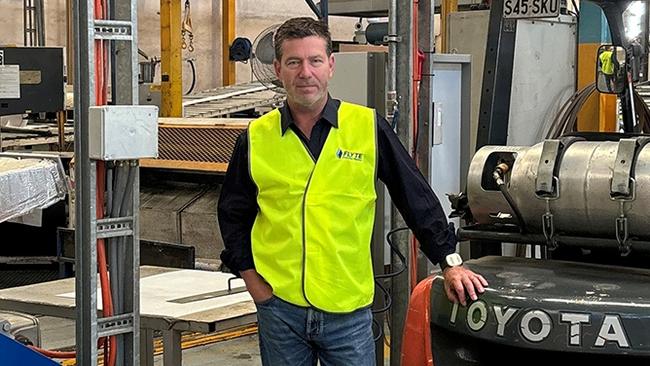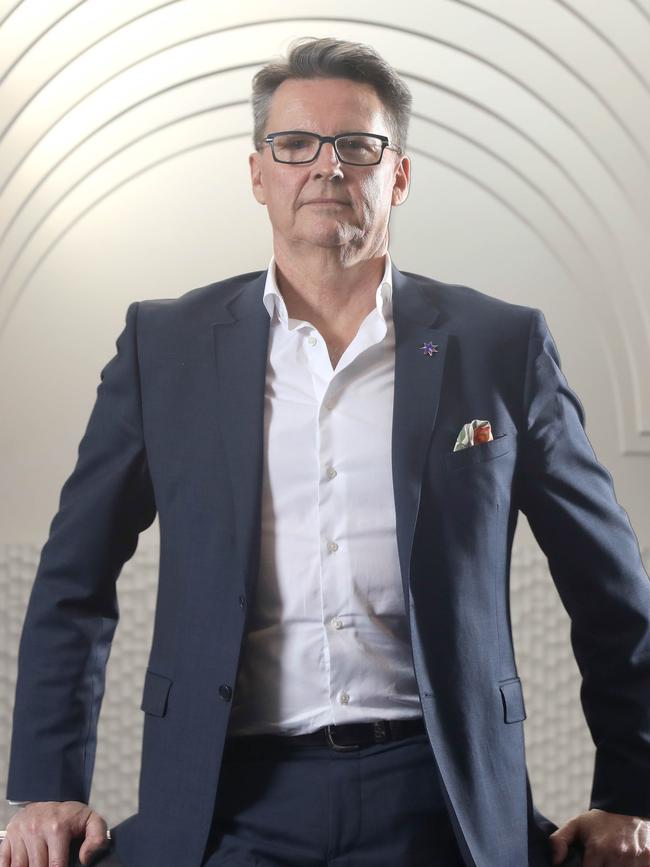South Australian Business Chamber uncovers compliance worries
Business conditions in SA have plunged to their lowest point since the depths of the pandemic, according to an SA Business Chamber survey. Here’s why.

Business
Don't miss out on the headlines from Business. Followed categories will be added to My News.
Business conditions in South Australia have deteriorated for a fourth consecutive quarter, according to a South Australian Business Chamber survey, falling to their lowest level since the depths of the pandemic.
The latest South Australian Business Chamber-William Buck Survey of Business Expectations, released on Tuesday, reveals that its business conditions index – a measure of businesses’ trading performance – slipped 0.8 points in the September quarter to 81.9 points, where 100 is considered a neutral level.
It’s fallen 13.8 points over the last year to its lowest level since June 2020.
South Australian Business Chamber chief executive Andrew Kay said cost pressures were continuing to put a squeeze on profits, while heightened levels of red tape and regulation were emerging as the biggest frustration facing local business owners.
“Every extra hour spent dealing with compliance is an hour taken away from growing a business, creating local jobs, and supporting South Australian consumers,” he said.
“The cumulative effect of dealing with growing regulatory demands and ongoing cost increases is driving many businesses to the point of despair.

“As one construction business told us, ‘There are more and more regulations, laws and rules around that need to be navigated ... the world is not a better place, just a more costly one’.”
The survey found South Australian businesses were spending significantly more time on regulatory compliance than they were a year ago, led by industrial relations compliance requirements that have increased since the introduction of the federal government’s Closing the Loopholes reforms in August.
According to the survey, 57.3 per cent of businesses said they were spending more time on industrial relations compliance compared to the same time last year, followed by work, health and safety (56.5 per cent) and tax compliance (52.2 per cent).
On a brighter note, South Australian business owners a feeling a little more bullish about their future prospects, with the survey’s confidence index rising by 3.4 points to 86.4 points.
However the index remains in negative territory for the twelfth consecutive quarter, with only 15.9 per cent of respondents expecting an improvement in the state’s economy over the next 12 months.
Rising costs, including wages, energy and rent, were citied as the biggest challenge facing business owners, followed by profitability, government policies and compliance, and staff shortages.
“These results reflect the fact that it remains tough going for many South Australian businesses,” Mr Kay said
“Cost pressures and a profitability squeeze remain a constant that is yet to show signs of abating.”
Bogged down in red tape
Soaring energy costs and increasing piles of paperwork are making it harder for Flyte Extruded Plastics to invest in new technologies and grow the business that has been manufacturing in Adelaide for more than 40 years.
Flyte is the largest custom sheet extruder in the country, specialising in recycling granulated waste back into plastic sheet products for commercial and industrial uses.
However managing director David Osborn said increasingly onerous compliance requirements were consuming more of management’s time, taking them away from developing new products and pursuing new business opportunities.
“My sense is that for a lot of small business owners, growing and preserving margins is increasingly challenging – the appetite for potential investment into innovation and growth is being affected due to energy costs and the complexity of the compliance landscape,” he said.
“For example, in the two years that I have been involved in this business, our energy costs have almost doubled.”
According to the latest South Australian Business Chamber-William Buck Survey of Business Expectations, nearly 79 per cent of respondents reported increasing overhead expenses, with no significant relief in sight.
The survey also found South Australian businesses were spending significantly more time on compliance activities than they were a year ago, including in relation to new industrial relations and work, health and safety laws.
Mr Osborn many small businesses were often ill-equipped to navigate the complex regulatory landscape.
“Realistically, as a small business owner, I’m never going to have a dedicated HR department, so our management team and I are having to take on that burden and continue to educate ourselves to ensure we are compliant across our business,” he said.
Despite the difficult business conditions, Mr Osborn and his team were continuing to focus on innovation as a source of growth, and like 58 per cent of business owners surveyed, were exploring the potential of artificial intelligence.
“Like many businesses we are in the early stages, but business conditions have caused us to ask the question of whether AI could help us optimise some of our processes,” he said.
“Whilst the initial investment is steep, we feel it will play a major role in our manufacturing program going forward.”




